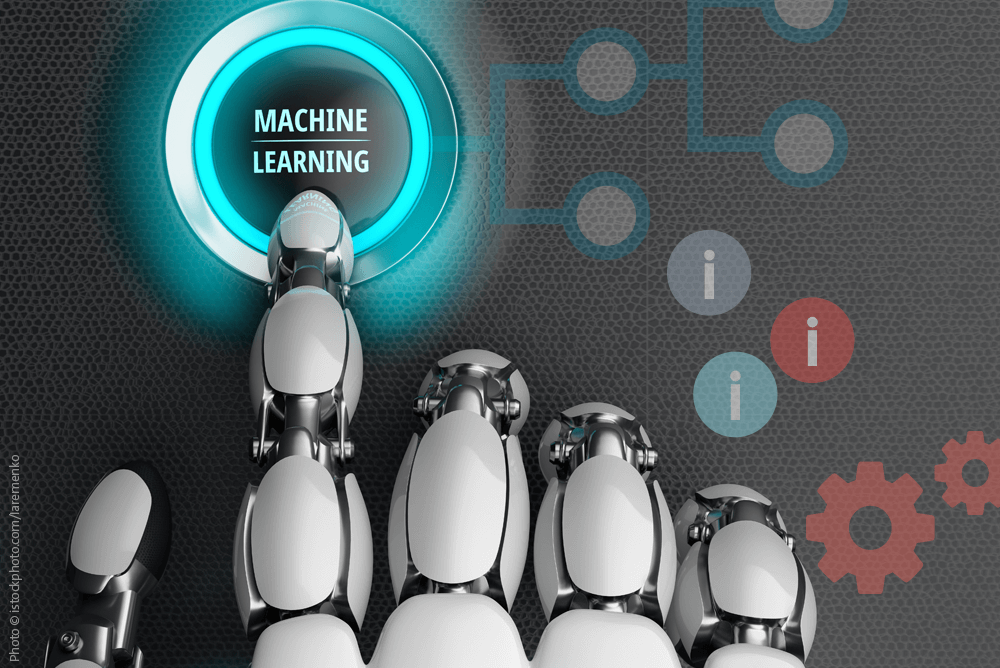As human beings, we have a penchant for machines doing our mundane tasks for us. The industrial age mass-produced the toaster, the electric kettle and the washing machine as prevalent “labor-saving” devices, and they eventually became part of our everyday life.
The progression to artificial intelligence (AI) makes sense in that context. Artificial intelligence — the latest buzzword in the business world — has already proven effective at automating repetitive tasks in sales and marketing, accounting, HR and more.
AI - A force here to stay
Artificial intelligence frees us up so we can spend precious productive hours on more mindful and creative aspects of our jobs. For instance, a salesperson who uses a CRM solution has more time to build meaningful relationships with customers. An HR specialist who uses a smart recruiting software to filter and screen job applicants far more efficiently can spend more one-on-one time with the final candidates.
For small businesses, these AI apps drastically improve operational processes and workflows. These technologies allow small-business owners to spend less time on spreadsheets and Excel charts and more productive hours of operations that matter.
Artificial intelligence doesn’t necessarily imply huge tech companies like Google, Amazon or Microsoft. For small businesses, AI may seem too complicated or too expensive. But that’s only at first glance. In reality, AI reduces costs and improves bottom lines.
AI is ever more pervasive than you may think. This year alone, venture capital firms have already invested $3.6 billion in AI startups, not accounting for massive financial infusion from IT giants. Small businesses increasingly use tailor-made AI technologies to their advantage.
There is no denying the fact that artificial intelligence can be intimidating to small businesses. In fact, a survey commissioned by Salesforce last year found that 61% of small-business owners felt threatened by AI.
Taking the first step toward adopting AI into your business operations may not be easy - but this move forward is becoming more and more critical to staying relevant in today’s environment. The reasons are manifold:
Big brands are already using AI
“Whether small businesses are ready or not, big brands are already using AI to stake out huge territory. Apple’s Siri uses natural language processing to recognize voice commands. So are companies like Amazon, Netflix, and Spotify. Every company, especially smaller businesses, must adopt AI as it makes every employee smarter, faster, operationally efficient and more productive.” - says Tony Rodoni, executive vice president of SMB sales at Salesforce.
How small businesses can jump on the AI bandwagon
Start by implementing AI for activities that have an immediate impact on revenue and cost Wearable technologies will enable better prevention
When Joseph Sirosh joined Amazon.com in 2004, he deployed AI to reduce fraud and bad debt, to address customers’ complaints about the late shipment, and to handle suppliers’ complaints about delayed payments. By 2013, his AI team grew from a staff of 35 to 1000, which made Amazon operationally efficient. In this period, Amazon registered a 10-fold increase in revenue.
Look for opportunities where AI helps to increase productivity with the same employee strength.
The AI experience of the 170-year-old news service Associated Press (AP) shows how AI dramatically improves news coverage with the same employee strength. In 2013, America had more than 5,300 registered publicly held companies. At the time, AP staff managed to write reviews about only 6% of these organizations, i.e., only 318 companies. With machine learning implementation, AP has meanwhile generated about 3,700 such news stories, which covers approximately 69% of the publicly registered companies in the U.S.
For instance, India Cements Limited uses Hirecraft software in recruiting. This software acts as a single point for receiving resumes. A smart search function creates a shortlist of adequate candidates for the interview process. The coordination of different phases in the interview process across 10 locations is always up-to-date on the Hirecraft dashboard.
As you embrace AI — start in the back office, not in the front office.
Why? Companies implementing AI often achieve better returns in back-office functions, such as IT and finance/accounting, compared with business functions that relate to customers, such as marketing, sales and service. What’s more, it’s wiser for small business to start using AI for back-office functions at the beginning of the learning curve and steadily expand implementation to areas that impact customers directly.
What AI apps can do today
Most artificial intelligence apps are designed to perform fairly complex tasks.
“AI-powered apps can schedule your business meetings, answer common customer requests and notify you that your connecting flight is delayed by 20 minutes when you thought you had five minutes to sprint to the gate,” says venture capitalist Michael Yamnitsky.
AI applications for small businesses can dynamically adjust marketing campaigns to select target audiences based on past data and past customer buying behavior patterns.
AI as the competitive advantage
Businesses that embrace AI achieve operational efficiencies well before others ever play catch-up. There are two factors why companies should adopt AI as early as possible:
Firstly, AI is not a technology that has an ON and OFF switch. It is a process interwoven in all your business processes. Fortunately, small businesses’ operations have less weaving and are more straightforward and more basic, with fewer hierarchy levels. The most important thing for small businesses is to have the right mindset and to proceed ahead step by step.
Secondly, using AI apps shows immediate gains in business processes. Over time, as employees become familiar — and more comfortable — with using AI tools, they show greater willingness to embrace the technology, which will enable faster growth and enhanced customer satisfaction.
Yes, maybe one day in the future, robots will take good care of you by monitoring your health, managing your treatments, activities and healthy eating, preventing emergencies and keeping you out of the hospital.
The benefits of AI
With AI, an entrepreneur can predict customer service issues before they happen. AI helps to identify prospects for your goods and services and to personalize your marketing efforts with real-time information. What’s more? Small businesses can respond faster and smarter to customer requirements, with better predictions, improvements in repetitive tasks (accounting, HR, etc.) and regulatory compliance, and more.
It’s time for small businesses to adapt AI tools in their quest to operate smart, agile and confident in the marketplace.



